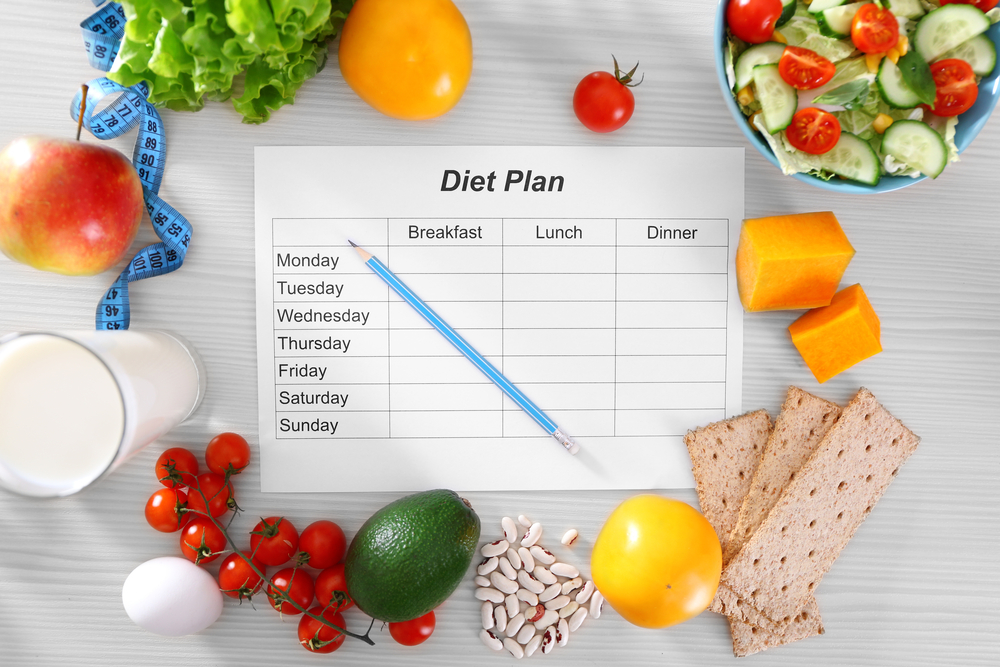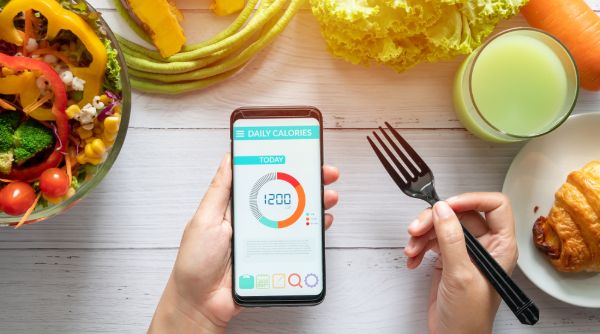Different eating plans for weight loss

To lose weight, we need to change our current habits. This means eating less – even when eating a healthy, balanced diet – and getting more active.
Often people that are trying to lose weight can fall into a pattern of disordered eating and go through cycles of weight gain and loss. This can lead to unhealthy habits and attitudes forming about foods which overall make weight management even more difficult and also have an impact on long-term health.
If this is something that you’ve struggled with and feel like you need support then there is help available. You can speak to your healthcare provider for further guidance or have a look at the NHS website for further information and details of supporting organisations.
Fad diets and exercise regimes that result in rapid weight loss are unlikely to work for long because these kinds of lifestyle changes cannot be maintained. Once you stop the regime, you’re likely to return to old habits and regain any weight lost.
The key to losing weight and keeping it off is to get your mind around that it’s not just a diet, it’s really about making long-lasting and sustainable diet and lifestyle changes that work for you.
Low calorie/Low fat

This is the traditional approach to weight loss. It is based on general principles of healthy eating, with a focus on reducing total fat content.
- Fat contains more calories than any other nutrient, so by reducing your fat intake, you will reduce your calorie intake too.
- There is a lot of evidence which demonstrates that this approach can help to reduce weight, improve blood glucose control and reduce your risk of heart disease.
- Have a look at the Carbs & Cals website which has a lot of great resources on it if you’re looking for ways-to-count-calories.
- To download a pdf guide for following a low calorie/low fat diet, click here.
Very low-calorie (VLCD)

This involves eating less than 800 calories per day, through eating normal food, liquid meal replacements (‘shakes’) or a combination of both.
- This diet should not be followed for more than 12 weeks.
- You should not attempt this kind of weight-loss programme unless you are under medical supervision and monitoring.
- Evidence from a small-scale study suggested that this approach improved HbA1c levels and resulted in weight loss in the majority of participants
- Larger studies suggest this may be a very successful weight loss diet in the short-term. The evidence is still awaited for longer-term outcomes.
- To download a pdf guide for following a VLCD, click here.
Intermittent fasting/5:2 diet

Intermittent fasting is based on a plan where for five days a week you maintain a healthy, balanced approach to eating and for the other two days, you have only 25% of your daily calorie requirements, i.e. 600 calories for men and 500 calories for women.
- You cannot have two ‘fasting’ days in a row but should spread them out over the week.
- Evidence suggests that intermittent fasting can also help to reduce weight, improve blood glucose control and reduce the risk of heart disease.
- Whilst shorter-term studies have shown promising results for intermittent fasting diets in people with type 2 diabetes, long-term safety is yet to be determined.
- If you’re thinking about trying a 5:2 diet, Carbs & Cals resource Starting-Out-on-the-5-2-Diet is helpful with further information and recipe books on their website.
- If you use insulin or take sulphonylureas (drugs like gliclazide) to manage your diabetes then speak to your healthcare professional before you start this diet as your medication may need to be adjusted on fasting days.
- To download a pdf guide for following an intermittent fasting diet, click here.
Mediterranean

This approach is based largely on eating plant-derived foods and includes fruit, vegetables, whole grains, pulses and healthier types of fat, with little or no red meat and processed foods.
- Evidence shows that the Mediterranean approach to eating can help to reduce weight, improve blood glucose control and reduce the risk of heart disease.
Low carbohydrate

A low carbohydrate diet involves eating less than 130 grams of carbohydrate a day.
- Foods that are high in protein can help you to feel fuller for longer, so reducing the amount of carbohydrate you eat and replacing it with protein can help to reduce the overall number of calories you eat each day.
- Evidence suggests that this approach can help people lose weight and improve their blood glucose control, however no more so than standard low-calorie or low-fat approaches to weight management.
- Carbs & Cals is a great resource for increasing your carb-awareness and giving tips on how to follow a low carbohydrate plan or have a look at the low carb program.
- To download a pdf guide for following a low carbohydrate diet, click here.
Have a look at the video below to see how a low carbohydrate diet has helped some people to lose weight.
Make a note of any changes that you think you can incorporate into your life and/or discuss it with friends, family or your healthcare professional. Diabetes UK has a lot of great resources to help with eating a healthy balanced diet, including recipes, food swaps and meal plans.
Different things work for different people. Have you made any changes in your life that have helped with your weight management? Feel free to share your thoughts with others in the comment section below!



Leave a Reply
You must be logged in to post a comment.